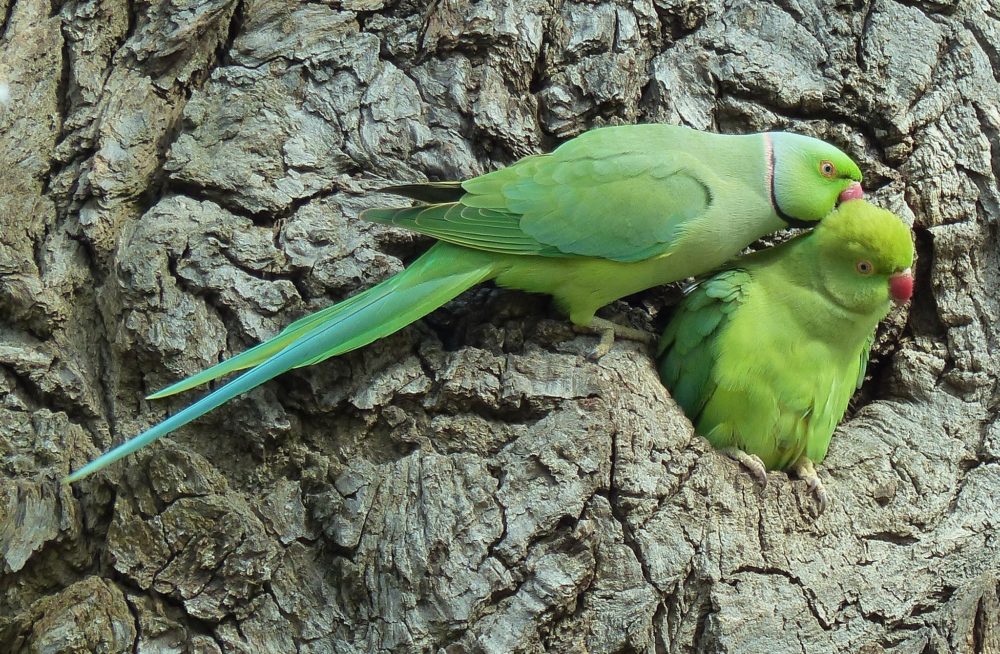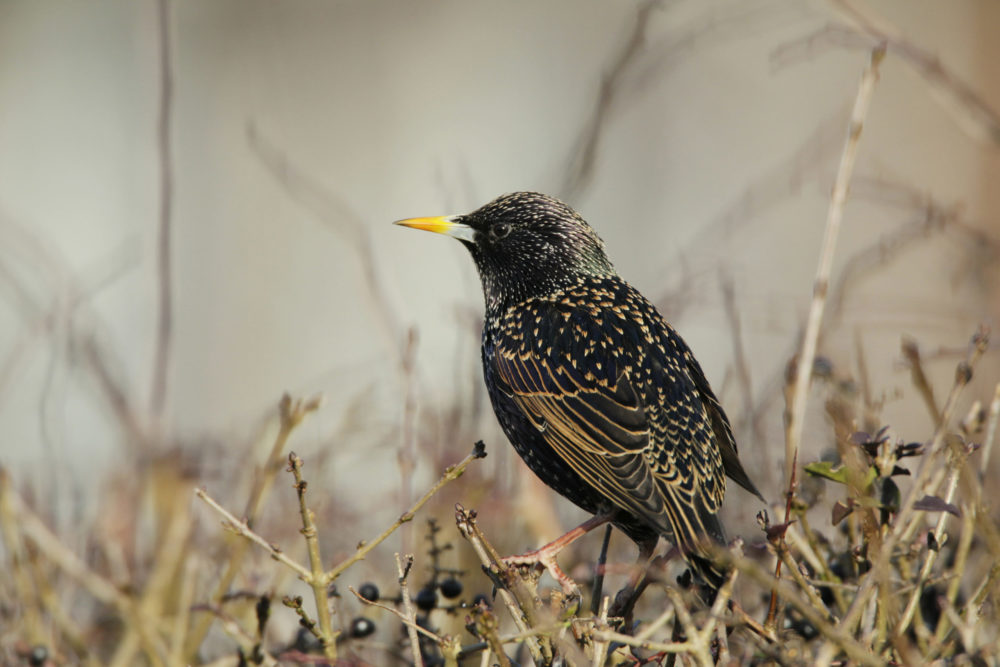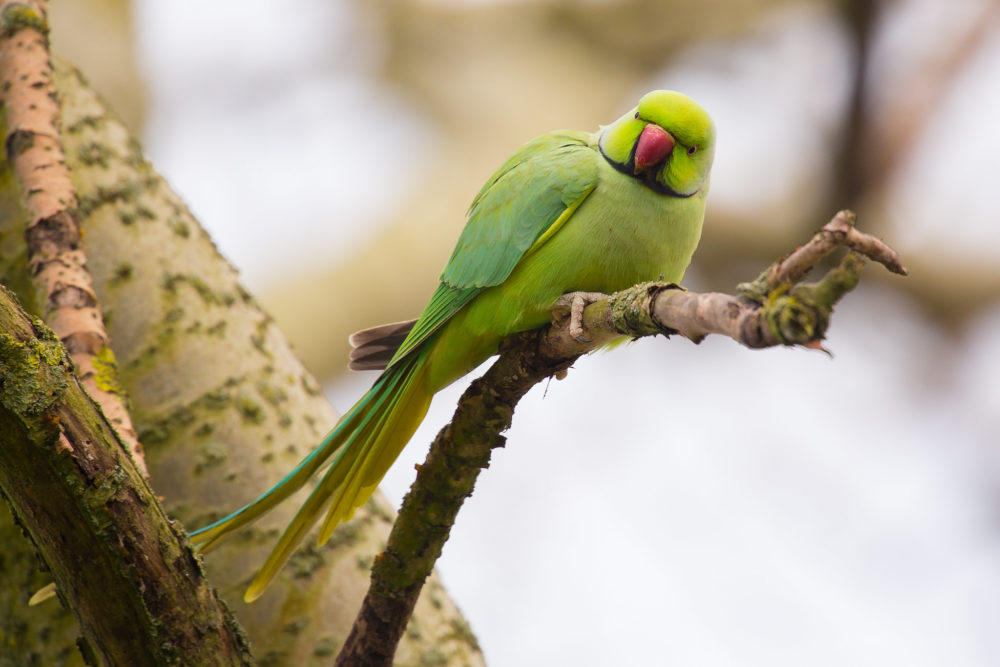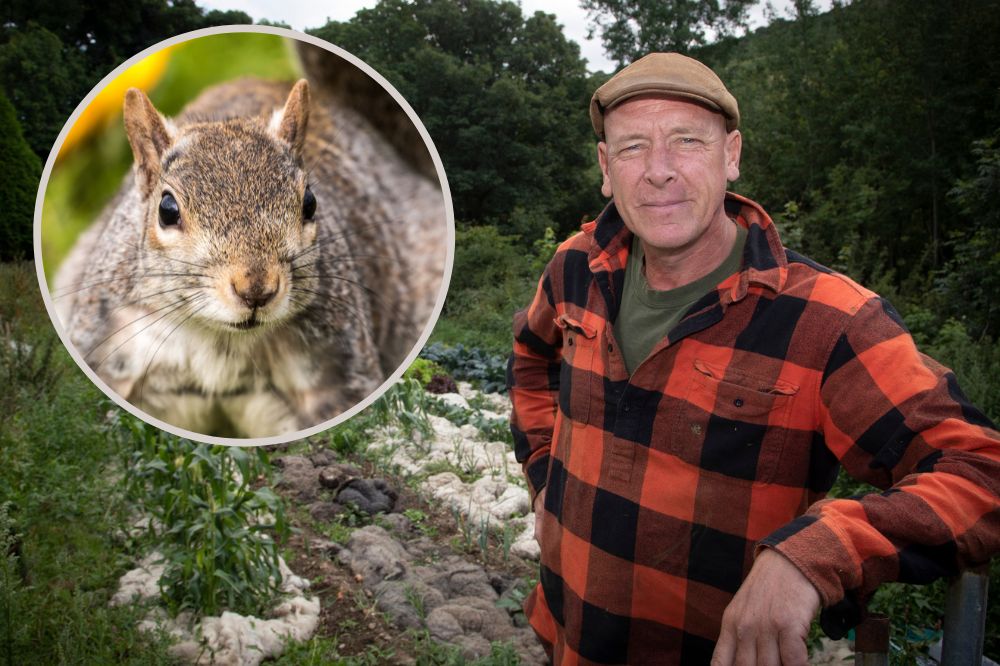Stop the Beaks: Parakeet pie, anyone?

Stephen Price
Taking place on the first Sunday of May, International Dawn Chorus Day is a worldwide celebration of birdsong – nature’s greatest symphony.
All across the world, people rise early to revel in the sweet sounds of nature – from rattling blackbirds in Blaina to crooning crows in Cowbridge, birdsong is the often overlooked soundtrack to every square mile in Wales.
The joyous sounds of our native birds are something we all take for granted, but during a call to a friend in Australia a few months back he remarked on the sound of the birds in the background. Something he missed terribly.
At the time, I hadn’t even noticed, it’s just there and always will be, won’t it?
As I write, I can hear a blackbird singing from a nearby tree – and tonight there will be a magnificent display of clattering jackdaws as they dance in the skies with a performance as beautiful as any starling murmuration.
That’s the thing with getting a bit older maybe. The joy of bird watching slowly takes over, rising in the ranks to one of the best of our everyday joys.

No longer do I spend my money on new clobber for nights out in the ‘Diff – all my disposable income is spent at B&M on bird seed, peanuts, fat balls and the like.
And I might just have to take on a second job to fund the pigeons that refuse to eat in moderation, torn between feelings of ‘get in there my son – you stuff your beak!!!’ and a more fearful ‘calm down, love, payday isn’t till the end of the month..’
London baby!
While Cardiff nights out might be a thing of the past, I still manage to spend some time in London, and over the past two decades I’ve become more than aware of the type of birdsong those in the south east of England enjoy (or should that be endure?) – namely, the call of the parakeet.
I say call, it’s better described as a screech or squawk akin to nails across a blackboard that even the best of double glazing has a hard time masking.
Don’t get me wrong, I find the birds utterly beautiful and charming, but their prevalence and their brain-drilling squawks are, to me and many like minded others, a cause for deep concern.
And it’s not just Victor ap Meldrew (that would be me) that has a problem with ring-necked parakeets.
With the ear-splitting invasive birds becoming more familiar across the UK, they’re beginning to ruffle more than a few feathers.
Pain in ring neck
According to the Natural History Museum, records of parakeets living wild in the UK can be found going back to the mid-nineteenth century, but it is only since the late 1990s that these hotly debated members of the avian world have been seen in London and southeast England in significant numbers and started to settle elsewhere.

Commonly known as the ring-necked or rose-ringed parakeet in reference to the band around the male birds’ necks, Psittacula krameri is native to Asia and sub-Saharan Africa.
Through DNA samples, scientists have traced the majority of the UK’s parakeets to Pakistan and northern areas of India.
None of the birds made the journey here by themselves – they were taken from the wild and brought here as exotic pets. As with many animals introduced by the pet trade, some birds either escaped or were released.
A popular theory about how they found their way into the wild was that the birds escaped from the set of the 1951 film The African Queen, filmed in West London.
Another rumour is that Jimi Hendrix released a pair on Carnaby Street, right in the centre of the capital. But according to a study which mapped historical news reports of sightings of the birds, none of these urban myths are true.
Researchers from Queen Mary University of London say, however, that ‘most ornithologists believe the parakeets’ spread in the UK is more likely to be a consequence of repeated releases and introductions’.
Digroeso i Gymru
Ring-necked parakeets have been recorded in most English counties, much of Wales, in southern Scotland and even across the Irish Sea in Northern Ireland.
The British Trust for Ornithology estimated 12,000 breeding pairs in 2016, with numbers continuing to grow.
Parakeets thrive near humans and have made their homes in many British cities and suburbs – from London’s Richmond Park to Didsbury in south Manchester and Glasgow’s Victoria Park, and unfortunately for us – in many spots in and around Cardiff.

The calls of ring-necked parakeets are one of the reasons some people label the birds as ‘pests’: their squawks are repetitive, squeaky and shrill.
Parakeets communicate primarily in flight and in social settings such as a roost, but often stay quieter around nesting sites to avoid the attention of predators.
Tawny owls, sparrowhawks and peregrine falcons have been known to prey on parakeets, and their eggs and young chicks can also be taken by grey squirrels.
Parakeets are hardly a victim, however, and can be aggressive and violent. They’ve been known to kill small mammals such as bats in tree hollows.

Dr Hazel Jackson is a research affiliate at the University of Kent and a parakeet specialist. She is hesitant to call the ring-necked parakeet a ‘problem’ in the UK but says further scientific study is needed to determine whether they are an invasive species causing harm to native wildlife.
She explains, ‘One UK study showed they dominate garden bird feeders, as you would expect due to their size, making it harder for our smaller native species to access the food put out for them.
‘Ring-necked parakeets are cavity hole nesters, so may compete with our native nuthatches and woodpeckers for these sites. The only hard evidence for this is from Belgium, but there is lots of anecdotal evidence through video footage.’
Solution
At the beginning of 2021, media reports sparked controversy by suggesting new hunting licences could allow the ring-necked parakeets to be killed to protect native species.
A Defra spokesperson clarified that ‘while ring-necked parakeets are one species which could be considered for control under general licences, this should not be taken as implying that Defra is planning a cull’.
The RSPB’s community forum contains a discussion board concerning the simple question: “Would you support a cull of the ring-necked parakeets?”
Its poster, using the nickname Keeta, shared: “This was a question I overheard in London’s Regents Park asked by someone performing a survey on the subject of people’s awareness of the growing colonies of Ring-Necked Parakeets in the London area.”
Importantly, Keeta asks: “I know the jury’s out on this particular non-indigenous bird, but does anyone else’s blood run cold every time they hear the word ‘cull’?”
One anonymous poster replied: “I understand how you feel about the issue of Ringed-necked Parakeets or Rose ringed Parakeets.
“It is like so many introduced species to this country – or however they got into the UK in the first place. The birds take the brunt of the crisis, and people have created the problem in the first place. So the birds are the ones who end up with the death wish attached to them
“Another ‘cull’ example is like the Ruddy duck – it is currently being removed in numbers as much as possible from the UK due to the fact it may interbreed with other ducks that are species that do belong to the UK – and are very rare indeed.
“The issues of culling species are a lot deeper than the cute cuddly aspect about them. With Grey Squirrels they harbour diseases, with ruddy ducks they can cause a species to lose pureness, and so forth…
“Sometime it is brutal what we have to do and other times it is necessary due to human ignorance in the first place. The species gets the blame each and every time.”
Another commenter wrote: “Parakeets breed fast and nest in substantial colonies. The official line is that they already cause social, economic and evironmental harm throughout their range.
“They are currently confined to localities in North London/Herts. Native tree dwelling species like woodpeckers and Nuthatches could be significantly displaced if the Monks really spread.”

Echoing my feelings, another followed with: “If the evidence is there that they are causing significant harm to a native species and there are no feasible alternatives (egg removal, contraceptives etc) then yes, I would support a cull same as I support culls of rats and rabbits on islands where they have been introduced and are threatening wildlife on those islands where there are no other ways of control.
“Would we object to people killing rats on islands where they are killing albatross chicks threatening albatrosses with extinction?
“Invasive species are another of the ways in which humans are driving species to extinction and while not the species fault I don’t think it is something we should just continue because invasive species can and do lead to extinctions.
“We have a choice, we can preserve biodiversity or leave invasive species where they are and let the species they are impacting decline towards extinction but we can’t preserve biodiversity without controlling invasive species.”
Culinary cull
I for one hope the issue is addressed before it’s too late – for our native birds and, perhaps especially, for the growing number of parakeets who are yet another victim of man made climate change and/or idiocy and disregard for nature and they will suffer the most if and when something is done about their unwelcome presence in the UK.
As with suggestions for how to deal with pesky grey squirrels, we could even aim for a ‘culinary cull’ perhaps?

Gareth Wyn Jones made headlines when making the case for squirrel burgers back last year, and no doubt many of the people complaining have no problem picking up a factory farmed animal for their supper from the supermarket.
Sing a song of sixpence a pocket full of rye.. four and twenty parakeets baked in a pie…
If that’s what it takes, then this member of the tofu-eating wokerati (credit to Suella for that) would rather see parakeets on the menu than the nation sleep walking into an ecological disaster that’s up there with the demise of poor red squirrels (and much less easy on the ears).

If nothing else, these beautiful yet troublesome birds act as a warning for us to rethink our acceptance of keeping any wild animals as pets.
Not only because, surprise surprise, they belong in the wild and not a cage or tank, but also because of the potential impacts their escapes might have on our delicate and downtrodden ecosystems.
So this International Dawn Chorus Day, remind yourself how wonderful our native birdsong is.
How truly magnificent our native and visiting birds are – and how great and deep the joy of watching them in our gardens, parks and woodlands is.
It would be a crying shame if things were any worse for our native birds than they already are.
A slice of parakeet pie anyone?
Support our Nation today
For the price of a cup of coffee a month you can help us create an independent, not-for-profit, national news service for the people of Wales, by the people of Wales.







You don’t have to go to London, there is one in Thompson’s park in your home town. Wouldn’t want to see a cull though, maybe the Tory’s could order them to fly to Rwanda?
The most disruptive invasive species by far are humans.
There is only one truly invasive species on planet earth, humans! Every other “invasive” species, plant and animal, were translocated by humans! There are many “native” species that are suffering through habitat loss, climate change, culling (scapegoated as disease carrying risk to farmed species – badgers). There isn’t anywhere near enough done to protect the environment/natural habitat for native species. With many native bird species, suitable roosting or nesting locations no longer exist. The government could legislate for building companies to use alternative types of bricks to replicate what previously existed but the government prefers it to be “voluntary” so… Read more »
We have invasive Humans in the country,but no attempt to (cull) them breed like ants at Our expense